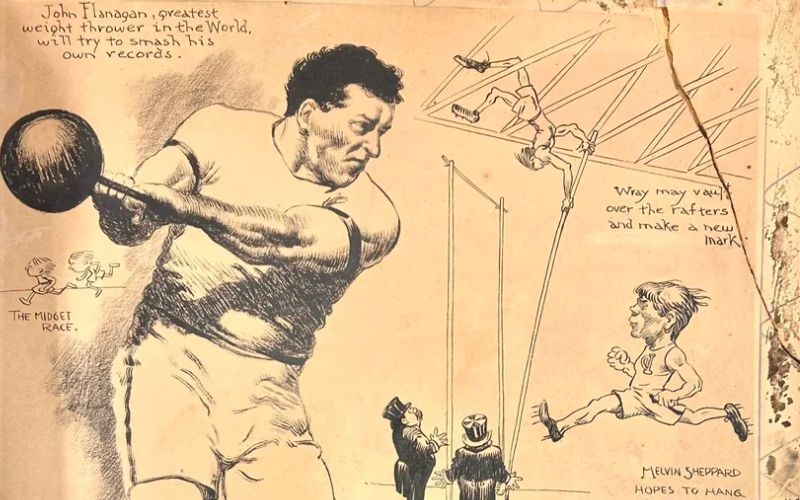With Mother’s Day upon us, I thought I’d launch into a discussion on sèx.
Go with me here.
One could argue that the single most defining element of Catholicism is the belief in the Virgin Birth. You have to accept that Mary was a) without sin, b) impregnated by the Holy Spirit (however that works), and c) gave birth to the actual Son of God. The rest becomes moot if you don’t believe that. Motherhood, then, takes on a particularly holy appeal. And you can’t have mothers unless you have sèx.
Female sexuality has remained, for me at least, one the of greatest head scratchers presented by the Church. Fellow IC blogger Brigid Fitzpatrick put forth her own struggles of growing up Catholic and being afraid of her sexuality, and it made me think about how the Church handles the issue. In large part, it doesn’t. It places all sexuality on either side of the right/wrong divide. Sèx within marriage to make babies = good. All other sèx = bad.
When The Da Vinci Code hit bookshelves and then theatres, pop culture obsessed about the possibility that Jesus did the naughty dance with Mary Magdalene and had children. It was such a tempting idea to indulge, one that would make the Church more palatable, more compatible with modern culture – Jesus didn’t condemn women or sèx after all!
Dan Brown’s salacious theories aside, there isn’t much evidence to support the Jesus-and-Mary-sittin’-in-a-tree scenario. But He certainly didn’t condemn women, and every time others around him tried to make women feel like second-class citizens, Jesus admonished them and praised the women for their humility and faith. Though he probably wasn’t much on the scene (too busy conversing with prostitutes), I’m pretty sure that Jesus would have made a good boyfriend, since he flawlessly passed the test my mom taught me to apply to all suitors: Watch how he treats his mother. If he respects her, he’ll respect you. (I cannot stress enough how accurate that test has turned out to be. Ladies, take note.)
I’ve always just accepted that Jesus was non-sexual, as unrealistic as that may be. I don’t believe that He had any offspring. What I have a hard time believing is that he didn’t have any siblings. His mother Mary was a teenager when she had him, and then was married and lived with her husband for many, many years. Decades. Aside from the obvious (and religiously condoned) conclusions to be drawn, there are Biblical references to Jesus’s brothers and sisters. The Church explains this away by the equally unlikely scenarios that they are either Joseph’s children by his never-mentioned first wife (acrimonious divorce, I’m sure) or the writers of the Gospel just meant brothers and sisters in the congregation of followers sense.
The problem this presents to Catholics is that it draws a dichotomy between Virgin and Mother, with Mary as the only person in history to be both at the same time. In reality, every mother was once a virgin and should not have to give up her claim to virtue and holiness because she can’t live up to this impossible example. Men have Jesus, and in the Church the best way to emulate Him is to become a priest and follow in his footsteps. Women aren’t allowed to follow this path, so they look to Mary, and the best they can do is half of what she did: be a virgin OR be a mother.
When I was a kid, I sang in the choir at my church for years. One of my favorite hymns was The Church is One Foundation – an ode to the Church as the bride of Christ. I liked that idea. My perspective of marriage was based on my parents, and they treated each other as equal partners with different strengths. My mom did the laundry because my dad was hopelessly colorblind. My dad vacuumed because he would rather do that than dust. And neither of them could fix a leaky sink. They each pulled their weight as parents based on what they were good at, and I thought that Jesus and the Church could do the same thing. Sometimes you need to look up to someone perfect and sometimes you need to be enveloped in a supportive and loving community. It was problematic as a masculine/feminine set up, but it did have validity.
Sometime during my childhood, the Church stripped all hymns of feminine references. “From Heaven He came and sought her to be His holy bride,” became “From Heaven He came and sought us to take us to His side.” The Church got PC and non-gender specific. I don’t know why this is. Is it so that women don’t feel left out? A day late and a dollar short on that one…
On this Mother’s Day, a day propagated by Hallmark but nevertheless embraced by the Church, we should hail our mothers for the divine creatures that they are and pray that the Church will one day see what Jesus so effortlessly embodied: women are holy too. Not as virgins or whores or mothers. As human beings made in the image of God.




Comments